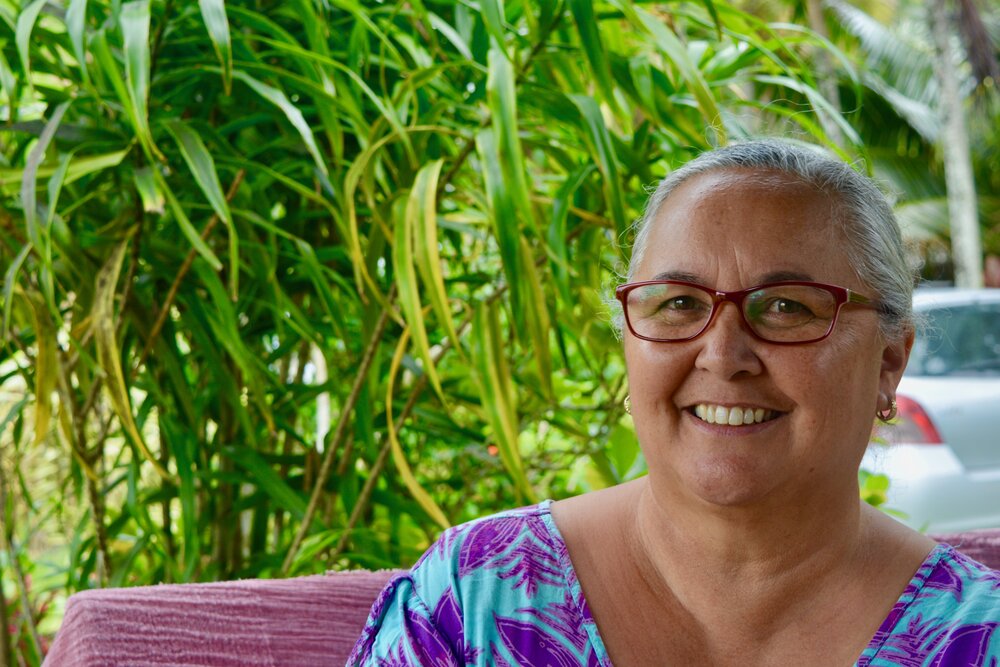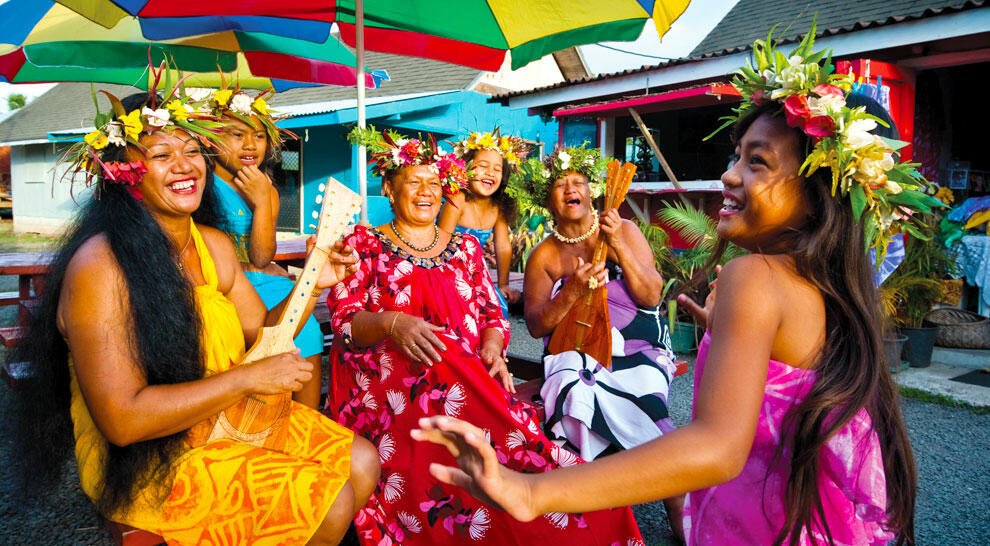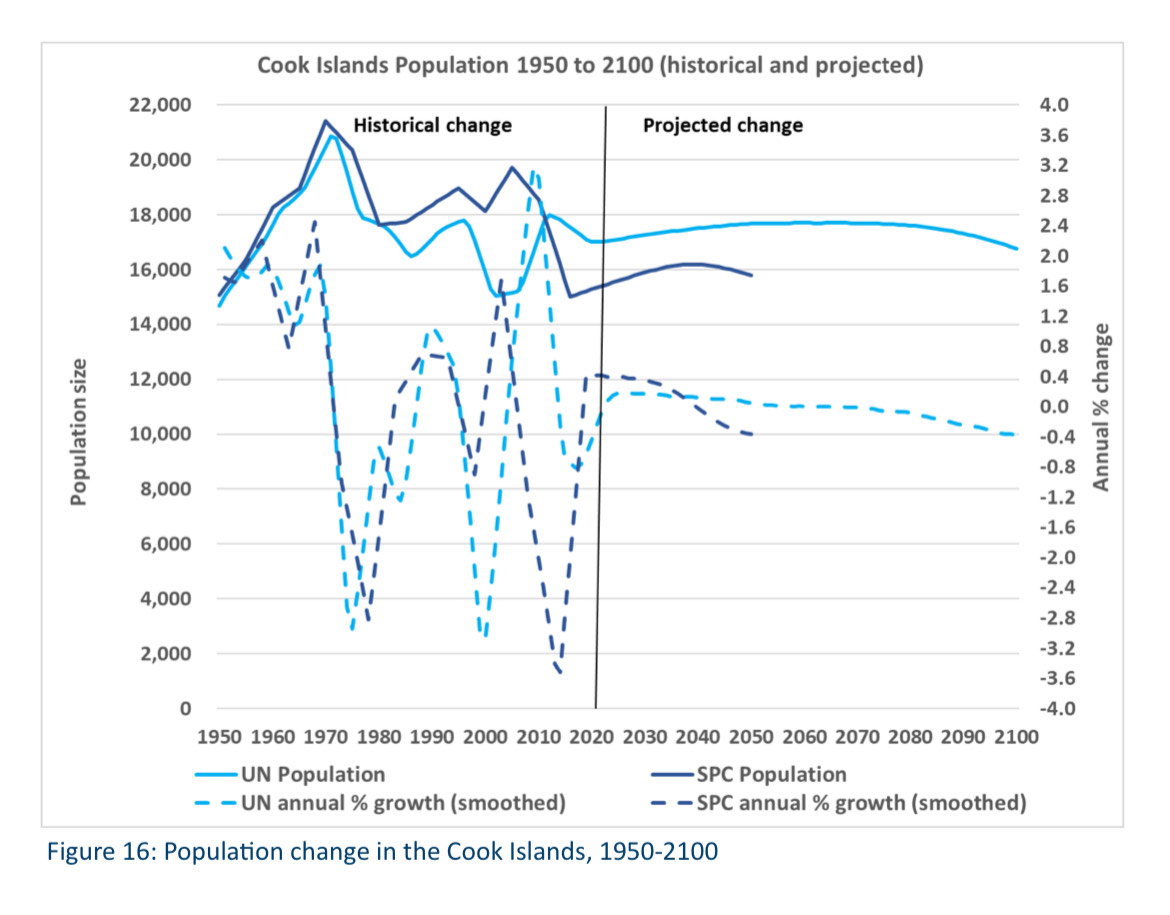‘No mass exodus’: Cook Islands population predicted to stay steady
Saturday 13 January 2024 | Written by Candice Luke | Published in Economy, Features, National, Weekend

Dr. Tina Newport, a proud descendant of Ngati Tamakeu and Ngati Te Tika in Rarotonga, Aitutaki, and Mangaia, hails from Vaimaanga. COOK ISLANDS RESEARCH ASSOCIATION/ 24011213
New research into Pacific populations predicts that the local population will remain steady over the next few generations. Candice Luke reports.
Dr Tina Newport of Vaimaanga says transnational relationships and connections are key to helping Cook Islanders and other Pacific peoples to “stay in place”.
“Remittances aren’t just about sending money back to help,” she says.
“Support can come in the form of other resources and ideas to help our families live on their land and thrive here.”
The Auckland University research team of Dr Newport, Cook Islander Professor Yvonne Underhill-Sem MNZM and Dr Roannie Ng Shiu, from Samoa, spoke with communities in Vaimaanga, Pukapuka, and South Auckland to understand how Cook Islanders see climate change impacting their ability to remain in their lands, and also what support are they going to need from their people located in other places.
“We have a small population here but globally our kinship ties and networks support and help each other.”
Dr Newport says the population here isn’t expected to increase as births, deaths and migration level out: “It’s not necessarily because women are having less babies in the Cooks, they just aren’t having them here. But our fertility rates are on par with other places. We have a history of a declining population because we can come and go as we please for work, education and health reasons.”
“But it will get to a point where numbers stabilise because the people who were going to move (away) would have moved by now.”

Researcher Dr Tina Newport says the population in the Cook Islands isn’t expected to increase as births, deaths and migration level out. Photo: TOURISM COOK ISLANDS/22061706
She says sudden natural disasters aren’t the only reason for climate mobility: “When you’re dealing with a slow onset of climate change you see peoples fishing ground become disturbed, their planting areas are affected, there’s salt water intrusion that makes it harder to grow food.
“Storm surges like what happened in Vaimaanga (in 2022) take out the shoreline and damage people’s properties. There’s commercial activity along that coastline which has an impact on the economy.”
This doesn’t only cause movement between regions and migration to New Zealand and Australia, but movement within an island such as moving inland after natural disasters along the coast.
Dr Newport stresses the need for resourcing not only during disaster relief, but to support the local ageing population.
“It’s not just about the next 10 years or however long the bank loan is for. It’s for the next generation and the generation beyond that. Not just having immediate solutions but enduring solutions that will provide a positive legacy.”
The report also recommends that population change should be monitored in five Pacific clusters rather than the three conventional Pacific regions: Melanesia, Micronesia and Polynesia.
Within the report the Cook Islands fall under the Eastern region alongside Samoa, American Samoa, Niue, Tokelau and Tonga.
The report sets the foundation for understanding the dynamics of population in the region as a whole, but also at a country level, and then taking account of what climate change looks like here and how that impacts population movement and scale.
“Predictions are we’re not going to see a mass exodus out for countries in the region. For the Cooks it would have to take something significant for communities to shift.”
Dr Newport says part of the resourcing needed to keep Pacific people stay in place, should come from Australia and New Zealand who have far higher emissions than other Pacific countries, while island nations are the most vulnerable.

Cook Islands population 1950-2100. AUCKLAND UNIVERSITY/ 24011212
“The environmental impacts are not the making of our country. Sea level rise, adverse weather events, those are the things that are not of our making yet we have to deal with it,” she says.
“It doesn’t matter where it is in the region, it all accumulates and has a net effect on those most at risk.”
Dr Newport and the research team are dedicated to this research not only as academics, but as tangata moana.
“There’s nothing about us without us. Our team is a group of Pacific people and in all of the countries involved we had locals doing the research.
“I’m from Vaimaanga. It’s a big deal to ask the community to participate. We have accountability and relationships in the community. With that comes responsibility, giving back, and ensuring that there’s value in it for them.”
More research reports, policy briefs and digital stories on climate mobility from the University of Auckland research team will be produced this year.
The research has been commissioned by the New Zealand Ministry of Foreign Affairs and Trade, funded with New Zealand’s climate finance. This research is being carried out by the University of Auckland, the University of Waikato and Mana Pacific Consultants – a research team made up of Pacific researchers with strong Pacific knowledge, methodologies, relationships and networks.














































